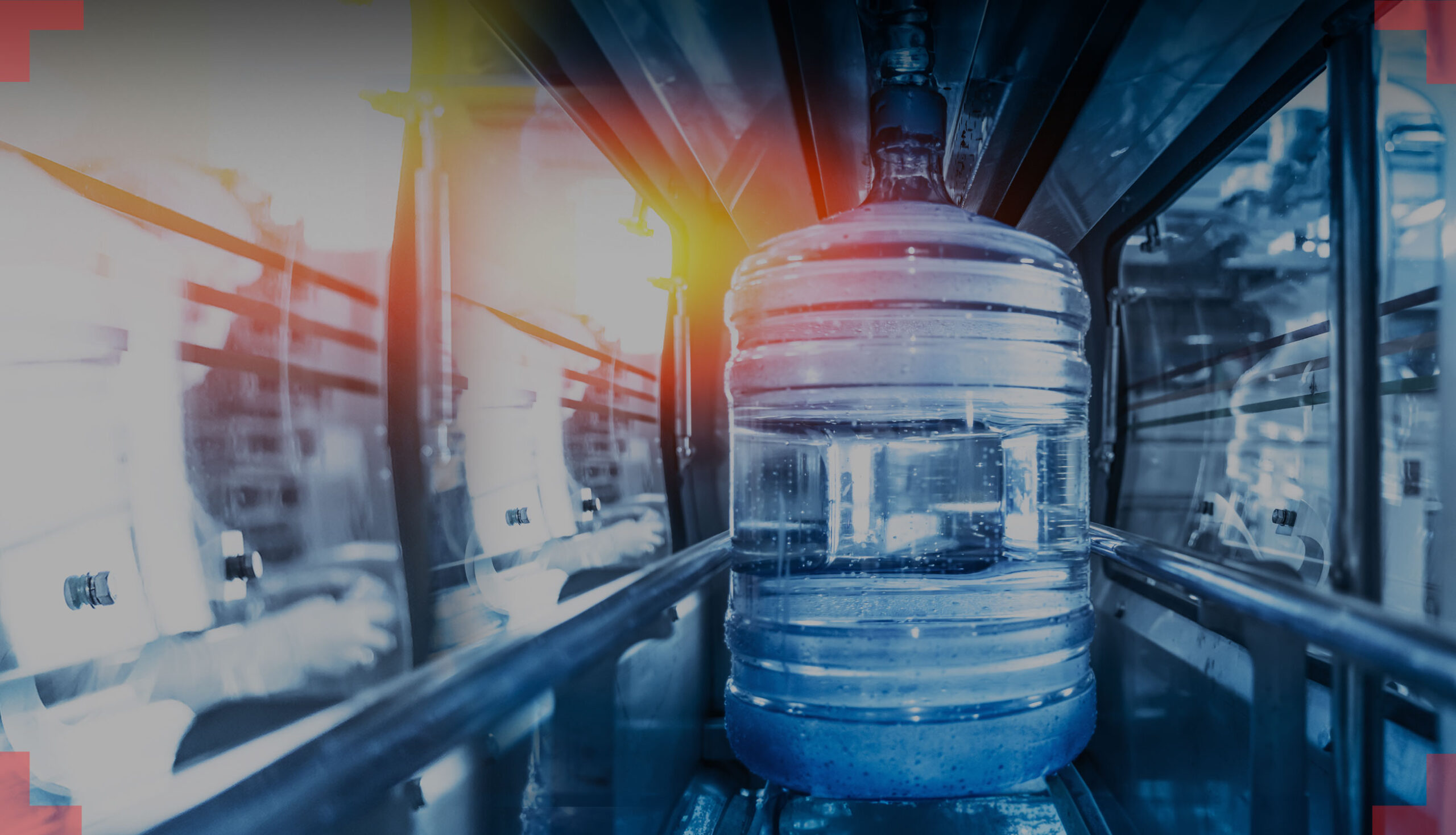Overcoming Bottle Inspection Challenges with Vision AI — Insights from Industry Experts
- Wanpherlin M Shangpliang
- June 6, 2024
In the bottled water manufacturing industry, the pursuit of perfect quality never stops. Each day, millions of bottles are made, and each one could have defects that risk damaging the brand’s reputation or, worse, pose a risk to consumer health and safety. This challenge is particularly acute in the bottled water industry, where the goal is to guarantee that every bottle meets the highest levels of quality, safety, and hygiene, even as production speeds continue to increase.
In one of our recent discussion forums with industry experts, they shed light on how Vision AI is changing the bottle inspection approach, elevating quality and efficiency in the bottled water sector. Let’s explore these solutions and their impact on overcoming inspection challenges.
Overcoming Challenges with Vision AI in Bottle Inspection
1. Adaptability to Variable Bottle Designs and Materials
Vision AI algorithms can adjust to different bottle shapes, sizes, and materials, including transparent and translucent surfaces. These algorithms automatically and accurately detect and differentiate bottle defects across all types of bottle design complexities by properly performing reflections, refractions, and other optical phenomena.
2. Adjust to Changing Lighting Conditions
Vision AI systems can be equipped with carefully engineered lighting systems that provide consistent and adequate illumination throughout the inspection area. By minimizing the impact of ambient lighting variations, these setups enable accurate bottle defect detection, ensuring that pinholes and other defects are not obscured by shadows or glare.
3. Improved Precision in Bottle Alignment and Placement
Integrating advanced Vision AI technology with modern bottle-handling machinery allows manufacturers to ensure that each bottle is precisely aligned and positioned on the conveyor lines. This strategic integration offers thorough spatial analysis and effective defect detection, greatly diminishing the risk of overlooking any defects or receiving false negative results.
4. Meets the Demands of High-Speed Production
Vision AI technologies are engineered to analyze and make real-time decisions, matching the rapid pace of bottled water production lines. By combining durable hardware, speedy and precise algorithms, and smooth integration with current manufacturing systems, these Vision AI technologies can handle high volumes without compromising accuracy or dependability.
5. Makes Production Switchovers Smooth and Efficient
Vision AI systems are built to quickly adapt to new changes in product design, materials, or operational parameters. This inherent adaptability considerably reduces downtime commonly required for retraining employees and recalibrating machinery with each production shift, keeping the production lines operating seamlessly without pauses.
6. Improved Defect Detection through Ongoing Learning
The continuous improvement of Vision AI models enhances their capacity to detect and classify a wide array of defects on bottle surfaces, including scratches, cracks, distortions, and extraneous materials. Exposure to a wider variety of bottle defect types enhances their capability to pinpoint and distinguish even the most irregular or unexpected quality issues and improves overall defect detection performance.
7. Smooth Integration with Quality Control Systems
Vision AI solutions are developed closely with manufacturers, ensuring they integrate effortlessly into existing quality control systems, production equipment, and data management frameworks. This helps ease the transition from traditional inspection techniques to more advanced, AI-based approaches, streamlining the process.
8. System Durability and Continuous Operation:
Designed with reliability and maintenance ease, Vision AI systems incorporate features that safeguard against downtimes and performance drops, even when inspection conditions change. These systems ensure consistent operation and robust performance through fault-tolerant design and effective error handling, minimizing the risk of interruptions. Regular maintenance and performance monitoring further contribute to system stability and availability.
Critical Considerations for Successful Vision AI Implementation
To ensure the success of Vision AI in manufacturing, companies should consider the following process:
- Evaluation of the Specific Needs: Understand the intricacies of the operations, such as the variety of bottle products, speed of production lines, and how the existing setup can support Vision AI. This assessment is critical to identifying the proper Vision AI configuration for the business.
- Select Experienced Providers: Choose a Vision AI provider with a strong track record and deep knowledge of the industry. Those with successful implementations behind them are more likely to meet your needs effectively.
- Plan Deployment and Training Carefully: Create a well-thought-out plan for integrating the Vision AI system into the processes and training the staff. This ensures seamless adoption and minimal operational disruption.
- Monitor and Optimize Continuously: Review system performance regularly and use data insights to refine and enhance the Vision AI solution, ensuring it continues to deliver value.
- Improving: Always look for and implement ways to fine-tune and upgrade the system for peak efficiency and effectiveness.
Conclusion
Computer Vision offers a robust solution for tackling the inspection challenges faced by the rapidly evolving bottling industry. By using algorithms, specialized lighting arrangements, seamless system integration, and ongoing adaptation, Vision AI technologies can precisely identify various defects, reduce the occurrence of missed defects, and match the demands of fast-paced production lines.
Bottled water manufacturers that successfully employ Vision AI stand to significantly improve their quality control processes and minimize wastage. Following industry best practices, manufacturers can effectively achieve peak performance with Vision AI-enhanced bottle inspection systems.
For expert guidance on implementing vision AI solutions for bottle inspection, contact us today.



